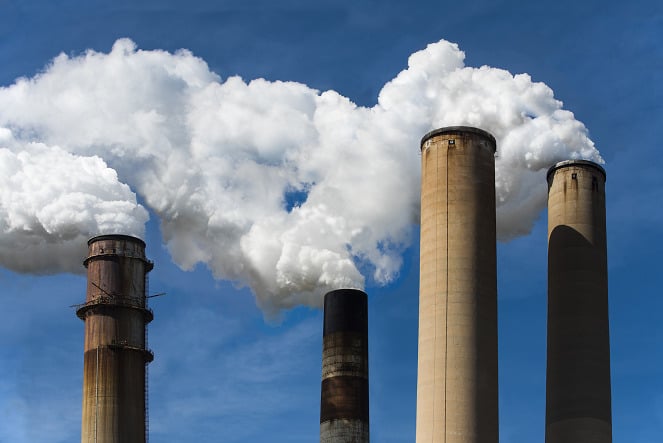The Committee on Climate Change (CCC) has rebuked the government for failing to deliver a pipeline of decarbonisation policies across several sectors, stressing that the time for it to address climate matters is running out.
Today the independent watchdog has issued its annual progress report to government, providing an update on measures taken by the government to meets its forthcoming fourth and fifth carbon budgets.
While the report states that power sector emissions have fallen “remarkably” since the advent of the Climate Change Act nearly a decade ago, reductions in other sectors have plateaued and even risen in the case of transport.
Lord Deben, chair at the CCC, said that while the UK might seek to lead the world in tackling climate change, the country continues to be off track in meeting its emissions targets in the 2020s and 30s.
“We recognise that over the last ten years, the government has shown it has the know-how and commitment to drive down UK emissions in the electricity sector by acting early and consistently to avoid costly interventions later. We now have to 3ensure that the government learns from this experience and presents a programme to tackle emissions right across the economy, including in buildings, transport and agriculture,” he said.
Amongst the four key recommendations to the government, the CCC is seeking the continuing support of the lowest-cost low carbon generation, a re-introduction of a route to market for the solar and onshore wind sectors and an end to the chopping and changing of government policies.
“Act now… get on with it”
But foremost among Lord Deben’s concerns are the delays associated with fleshing out the bones of policies promised within last year’s Clean Growth Strategy, but still awaiting delivery.
“This can’t go on… Act now, climate change will not pause while we consider our options. And act in the consumer interest: pursue the low-cost, low-risk options, like onshore wind…” he writes in the report’s foreword.
In a briefing with journalists on Tuesday morning, Lord Deben was more candid.
“We really have to get on with it. We have to have proper action, and that means not just effective regulation and strict enforcement, not just the simple low cost options – why on earth are we not allowing those who want to have onshore wind to have onshore wind, what’s the argument that you don’t allow it? – and we also need an end to the chopping and changing of policy.
“We have to get our focus right and our story right, which is what the Clean Growth Strategy was, and we’ve got it central to our economy. We’ve now got to get on and do it. This report makes it very clear that the government isn’t doing it,” he said.
Central among Lord Deben’s frustrations is that transport secretary Chris Grayling has still to publish the so-called ‘Road to Zero’ transport strategy, a piece of legislative work originally slated to be published in March this year.
While reports from earlier this week quoted Grayling as having said the report would be published imminently, Deben said that the absence of it, and other pieces of legislation such as the follow up to last year’s Smarts Systems and Flexibility Plan, was holding progress back.
“I think if you wanted to characterise this report, it’s the degree to which uncertainty is egregious in this government and that we’re not getting certainty in all sorts of areas. For example we are still waiting for the Road to Zero document which was supposed to come out in March and we are now in June, and we’re all in June, and it would be good to have that report and it would have been good to have it when talking about what comes before what. Not having it means we have to assume there is nothing there,” he said.
Uncertainty and short-sighted decisions
The progress update has widely been well received. Lawrence Slade, chief executive of trade body Energy UK, said the progress made in decarbonising the power sector has proved the effectiveness of strong commitments and policies.
“Conversely a lack of certainty and short-sighted decisions, like cutting energy efficiency programmes or blocking the route to market for the cheapest technologies such as onshore wind, just increases the eventual costs of what is an unavoidable responsibility. Some of these decisions are false economies and fail to recognise that embracing the opportunities presented by the drive to decarbonise is a boost, not a burden, to economic growth,” he said.
Richard Black, director at the Energy and Climate Intelligence Unit, said the report is “remarkably explicit” in its advice.
“As the Climate Change Act celebrates its tenth anniversary this year, the CCC is effectively recommending the very things that have made the Act such a success – consistent policy making, which provides certainty to businesses, driving decarbonisation at the lowest possible cost. And really its prescription is very simple: ‘more of the same, and quickly’.”





